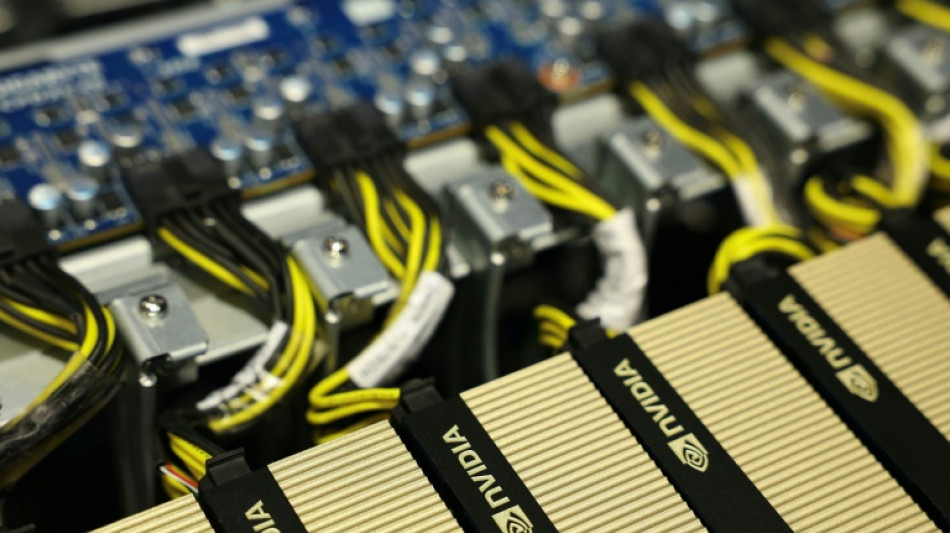
-
 Rallies across US after woman shot and killed by immigration agent
Rallies across US after woman shot and killed by immigration agent
-
Egypt dump out holders Ivory Coast as Nigeria set up AFCON semi with Morocco

-
 Rosenior salutes 'outstanding' start to Chelsea reign
Rosenior salutes 'outstanding' start to Chelsea reign
-
Maduro loyalists stage modest rally as Venezuelan govt courts US

-
 Byrne late penalty fires Leinster into Champions Cup last 16 after 'ding-dong' battle
Byrne late penalty fires Leinster into Champions Cup last 16 after 'ding-dong' battle
-
Rosenior makes flying start as Chelsea rout Charlton in FA Cup

-
 Rallies across US against shooting of woman by immigration agent
Rallies across US against shooting of woman by immigration agent
-
Salah closer to AFCON glory as Egypt dethrone champions Ivory Coast

-
 O'Neil ends 'crazy three days' with Strasbourg cup canter
O'Neil ends 'crazy three days' with Strasbourg cup canter
-
Mitchell leads Cavs over T-Wolves

-
 O'Neil ends 'crazy few days' with Strasbourg cup canter
O'Neil ends 'crazy few days' with Strasbourg cup canter
-
Argentina wildfire burns over 5,500 hectares: governor

-
 Byrne late penalty fires Leinster into Champions Cup last 16
Byrne late penalty fires Leinster into Champions Cup last 16
-
Roma beat Sassuolo to close in on Serie A leaders Inter

-
 Villa's FA Cup win at Spurs leaves Frank on the brink
Villa's FA Cup win at Spurs leaves Frank on the brink
-
Osimhen focused on Nigeria glory not scoring record

-
 Undav calls shots as Stuttgart thump Leverkusen
Undav calls shots as Stuttgart thump Leverkusen
-
Venezuelan prisoners smile to hear of Maduro's fall

-
 Thousands of Irish, French farmers protest EU-Mercosur trade deal
Thousands of Irish, French farmers protest EU-Mercosur trade deal
-
Kiplimo captures third straight world cross country title

-
 Osimhen leads Nigeria past Algeria into AFCON semi-finals
Osimhen leads Nigeria past Algeria into AFCON semi-finals
-
US urges fresh talks between Syria govt, Kurds after deadly clashes

-
 Weekend of US protests after woman killed by immigration agent
Weekend of US protests after woman killed by immigration agent
-
Monaco cling on with 10 men to avoid French Cup shock

-
 Rooney close to tears as brother masterminds FA Cup history
Rooney close to tears as brother masterminds FA Cup history
-
Semenyo scores on Man City debut in 10-goal rout of Exeter

-
 Villarreal sink Alaves to stay in La Liga hunt
Villarreal sink Alaves to stay in La Liga hunt
-
Bristol, Glasgow reach Champions Cup last 16

-
 Freiburg beat 10-man Hamburg to climb to eighth in the Bundesliga
Freiburg beat 10-man Hamburg to climb to eighth in the Bundesliga
-
Venezuela loyalists to rally one week after Maduro's capture

-
 Syrian authorities transferring Kurdish fighters from Aleppo to northeast
Syrian authorities transferring Kurdish fighters from Aleppo to northeast
-
Football: Five memorable FA Cup upsets

-
 Odermatt warms up for Winter Games with Adelboden giant slalom win
Odermatt warms up for Winter Games with Adelboden giant slalom win
-
Benin showcases culture with Vodun Days

-
 Iran crackdown fears grow as protests persist
Iran crackdown fears grow as protests persist
-
Odermatt wins Adelboden giant slalom for sixth World Cup success of season

-
 Holders Crystal Palace stunned by Macclesfield in biggest ever FA Cup shock
Holders Crystal Palace stunned by Macclesfield in biggest ever FA Cup shock
-
Odermatt wins Abelboden giant slalom for sixth World Cup success of season

-
 Poland reach United Cup final despite Swiatek loss to Gauff
Poland reach United Cup final despite Swiatek loss to Gauff
-
India's Gill calls it 'destiny' after shock T20 World Cup snub

-
 'Driven' Vonn storms to 84th World Cup win in Austrian downhill
'Driven' Vonn storms to 84th World Cup win in Austrian downhill
-
Syrian army says stopping Aleppo operations, but Kurds deny fighting over

-
 Thousands of Irish farmers protest EU-Mercosur trade deal
Thousands of Irish farmers protest EU-Mercosur trade deal
-
Vonn storms to 84th World Cup win in Austrian downhill

-
 Anger over fatal Minneapolis shooting fuels US protests
Anger over fatal Minneapolis shooting fuels US protests
-
New rallies erupt in Iran as crackdown fears grow

-
 Real Madrid not 'kamikaze' with Mbappe health: Alonso
Real Madrid not 'kamikaze' with Mbappe health: Alonso
-
South Africa defends naval drills with Iran, Russia as 'essential'

-
 Alcaraz beats Sinner in sold-out South Korea exhibition match
Alcaraz beats Sinner in sold-out South Korea exhibition match
-
'Racing against time': Death toll rises after Philippines trash site collapse


Europe's fastest supercomputer to boost AI drive
Europe's fastest supercomputer Jupiter is set to be inaugurated Friday in Germany with its operators hoping it can help the continent in everything from climate research to catching up in the artificial intelligence race.
Here is all you need to know about the system, which boasts the power of around one million smartphones.
- What is the Jupiter supercomputer? -
Based at Juelich Supercomputing Centre in western Germany, it is Europe's first "exascale" supercomputer -- meaning it will be able to perform at least one quintillion (or one billion billion) calculations per second.
The United States already has three such computers, all operated by the Department of Energy.
Jupiter is housed in a centre covering some 3,600 metres (38,000 square feet) -- about half the size of a football pitch -- containing racks of processors, and packed with about 24,000 Nvidia chips, which are favoured by the AI industry.
Half the 500 million euros ($580 million) to develop and run the system over the next few years comes from the European Union and the rest from Germany.
Its vast computing power can be accessed by researchers across numerous fields as well as companies for purposes such as training AI models.
"Jupiter is a leap forward in the performance of computing in Europe," Thomas Lippert, head of the Juelich centre, told AFP, adding that it was 20 times more powerful than any other computer in Germany.
- How can it help Europe in the AI race? -
Lippert said Jupiter is the first supercomputer that could be considered internationally competitive for training AI models in Europe, which has lagged behind the US and China in the sector.
According to a Stanford University report released earlier this year, US-based institutions produced 40 "notable" AI models -- meaning those regarded as particularly influential -- in 2024, compared to 15 for China and just three for Europe.
"It is the biggest artificial intelligence machine in Europe," Emmanuel Le Roux, head of advanced computing at Eviden, a subsidiary of French tech giant Atos, told AFP.
A consortium consisting of Eviden and German group ParTec built Jupiter.
Jose Maria Cela, senior researcher at the Barcelona Supercomputing Center, said the new system was "very significant" for efforts to train AI models in Europe.
"The larger the computer, the better the model that you develop with artificial intelligence," he told AFP.
Large language models (LLMs) are trained on vast amounts of text and used in generative AI chatbots such as OpenAI's ChatGPT and Google's Gemini.
Nevertheless with Jupiter packed full of Nvidia chips, it is still heavily reliant on US tech.
The dominance of the US tech sector has become a source of growing concern as US-Europe relations have soured.
- What else can the computer be used for? -
Jupiter has a wide range of other potential uses beyond training AI models.
Researchers want to use it to create more detailed, long-term climate forecasts that they hope can more accurately predict the likelihood of extreme weather events such as heatwaves.
Le Roux said that current models can simulate climate change over the next decade.
"With Jupiter, scientists believe they will be able to forecast up to at least 30 years, and in some models, perhaps even up to 100 years," he added.
Others hope to simulate processes in the brain more realistically, research that could be useful in areas such as developing drugs to combat diseases like Alzheimer's.
It can also be used for research related to the energy transition, for instance by simulating air flows around wind turbines to optimise their design.
- Does Jupiter consume a lot of energy? -
Yes, Jupiter will require on average around 11 megawatts of power, according to estimates -- equivalent to the energy used to power thousands of homes or a small industrial plant.
But its operators insist that Jupiter is the most energy-efficient among the fastest computer systems in the world.
It uses the latest, most energy-efficient hardware, has water-cooling systems and the waste heat that it generates will be used to heat nearby buildings, according to the Juelich centre.
L.AbuAli--SF-PST



